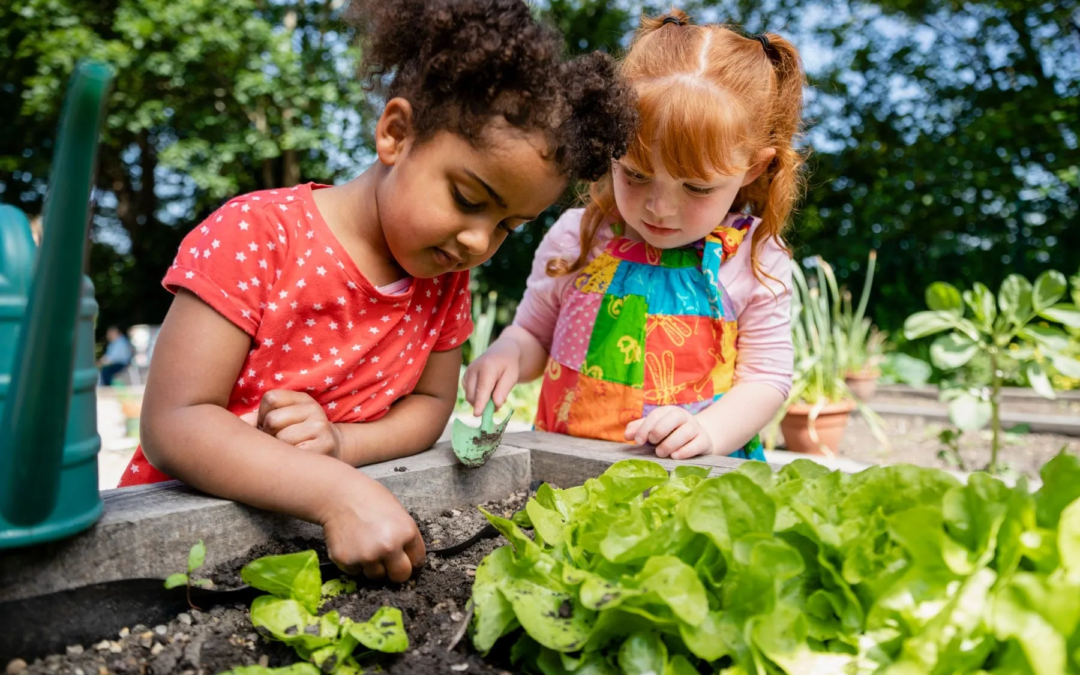Gardening can be an effective way of furthering your child’s development, teaching them skills in agriculture, science and math’s. There are numerous benefits of gardening for children, from the health advantages of being active outside to learning about the effects of seasons and climate on plant growth. Encouraging your child to take up gardening in their early years helps develop their cognition, health and life skills.
The Benefits of Gardening in Kids’ Development
Gardening supports your child’s development in several key areas. It develops their gross motor skills through physical activity, strengthening muscle development and improving hand-eye coordination. Gardening also helps your child develop fine motor skills, encouraging precision and concentration when handling small seeds and using garden tools.
You can also use gardening as an educational activity for your child, teaching them about the natural world. By allowing your child to observe the growth of flora from the seeds they plant, they will gain a better understanding of the life cycle of living things, and what factors promote growth. Gardening teaches your child about the effects of sunlight, water and soil quality, and how to solve problems when nature is less predictable.
Gardening also develops your child’s development of patience and responsibility. Waiting for a seed to sprout or a plant to bear fruit can be a laborious, yet rewarding process. Caring for plants throughout their life cycle also teaches your child respect and responsibility, while seeing them eventually flourish boosts their self-esteem and sense of accomplishment.
One of the other benefits of gardening for children is that it allows your child an opportunity to connect not just with nature, but with the people around them. Working in the garden as a family or a small group allows your child to learn to share tasks, communicate with others and follow instructions. Along the way, teamwork and empathy are taught as children learn to care for plant life.
Healthy Habits from Gardening
The importance of gardening in early childhood extends beyond a fun activity that teaches life skills. Gardening takes a practical approach to teaching healthy eating habits, teaching children where food comes from and encouraging a balanced diet rich in fresh produce. Growing the fruit and vegetables themselves makes children more likely to take an interest in eating them, promoting a healthy diet.
One of the other benefits of gardening for children is how it promotes physical development. Digging, planting, weeding and watering all help children to be more active outdoors and gain the Vitamin D they need, contributing to bone development and a stronger immune system.
Gardening as an Educational Tool
In addition to life skills and physical activity, gardening allows your child to apply elements of math’s and science.
Beyond plant life cycles, weather impacts and seasonality, gardening teaches your child about environmental responsibility, instilling the importance of taking care of the planet from a young age.
Meanwhile, gardening allows your child to apply basic math’s skills, including calculating the space in the garden, counting the number of seeds and measuring plant growth. Gardening can also improve your child’s literacy skills, expanding their vocabulary with new words relating to plant life and garden tools.

